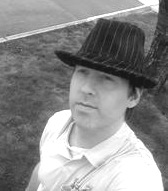 James Combs, composer… Ah, where to start?… I met James years ago, in our formerly-shared hometown of Seattle. Truly a “regular-Joe” in person, giving little hint of the ornate wheels spinning underneath. An anecdote on James’ blog seems a perfect illustration of the man and the work:
James Combs, composer… Ah, where to start?… I met James years ago, in our formerly-shared hometown of Seattle. Truly a “regular-Joe” in person, giving little hint of the ornate wheels spinning underneath. An anecdote on James’ blog seems a perfect illustration of the man and the work:
A Minimalist Experience
A boring Sunday, really not so much different than any other Sunday. March 16, 2008, I went for a drive to run some miscellaneous errands. My wife informed me that we were in some need of household items which could be purchased at the nearest store. So heading to the store on this boring Sunday, I am ever increasingly slipping slowly, steadily, into a trance state while driving. I am sure it was not unsafe, and I believe there is a name for it. Highway hypnosis. The condition where you arrive at your destination while not recalling much of the way there. I remember arriving at the store that boring Sunday and noticing the parking lot was quite full. This pulled me out of my trance to an irritating degree. Not finding one parking spot, my wife decided to run in and get the couple of items and I would simply drive around the parking lot until she made her way back outside. So I started driving steadily, cautiously through the parking lot which went in a round about. The first loop, I was concerned with looking out for other cars, but I have to say by the time I made it to my second lap I was really feeling the track, memorizing all the angles. By the time I hit the third lap I was steering around vehicles and halting with expert dexterity for crossing traffic through the parking lot, the track. I can’t remember what lap I was on when my cell phone rang and woke me up from my hypnotic state. It was my wife wondering why I kept driving past her, waiting outside the front of the store.
Self-taught, James writes smallish, fairly static, elegant and polished yet absolutely irrational piano pieces. Pieces from another century’s drawing room — though that century could only be invented in the here and now. Maybe if we overlayed glass slides of Chopin, Satie, Stravinsky, Feldman, Glass, Eno, then maybe… Each small piece has the quality of a Mark Ryden painting; antique poise and luminescence recalled in a disturbing dream from just last night. James makes no claims to intrude on Brian Ferneyhough’s turf; yet for all their simplicity these modest piano pieces show the most wonderful intuition for line, sonority, weight and color, all at just the right moment. I suppose we could call the pieces “etudes”, but what they teach would be philosophical rather than technical. There’s also a kind of deadpan humor, a bit of Buster Keaton or even Steven Wright (“I went to a restaurant that serves ‘breakfast at any time’. So I ordered french toast during the Renaissance.”) running through the whole ethos. So what kind of music is this? Again, I’ll let James explain:
“Classical” … The meaning of this word pertaining to music obviously is defined as a musical form. So what is this meaning? Ask any average guy and he would probably say “like what Mozart and Beethoven composed.” Hey, he would be absolutely correct. I mean, there was an age long ago termed the “classical period.” This period was defined not only within the music, but paintings, architecture, poetry, etc.
So if you ask the average “Joe” what contemporary classical is, they might scratch their head and reference ? I mean, most likely. And that’s the problem. Is rock a period? Is jazz a period (I know about the age, but we’re talking music)? The term “classical” is a definite problem. It links the past to the present under false pretenses. Imagine Philip Glass or Steve Reich being asked “what genre of music to you compose for?” They answer “impressionism.” That is if we swap out the word classical in favor of the word impressionism, both a period so would it matter?
Does the use of the word classical as a blanket definition of all eras of this form in turn form a bias within academia and elitists? Meaning, to pick classical as the word might say to some that the era of classical itself is the most relevant to every genre. Here in Seattle our “classical” radio station rarely strays (some might say deviates) from the baroque, classical and romantic eras. I would bet that to be the case for every metropolitan city around the world.
Do you want a solution? Take out “classical” as the definition of all periods in aforementioned music and replace with “amaranth.” An unfading flower.
I compose amaranth music. I compose amaranth music in a contemporary style.
James first self-produced CD release, Charmed Elixers, is available now on both CD Baby and iTunes.
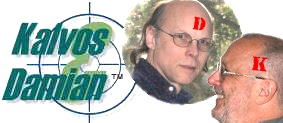 Robert Gable at his aworks blog flagged this gem of news from Dennis Bathory-Kitsz’s We Are All Mozart site:
Robert Gable at his aworks blog flagged this gem of news from Dennis Bathory-Kitsz’s We Are All Mozart site: James Combs, composer… Ah, where to start?… I met James years ago, in our formerly-shared hometown of Seattle. Truly a “regular-Joe” in person, giving little hint of the ornate wheels spinning underneath. An anecdote on James’
James Combs, composer… Ah, where to start?… I met James years ago, in our formerly-shared hometown of Seattle. Truly a “regular-Joe” in person, giving little hint of the ornate wheels spinning underneath. An anecdote on James’ 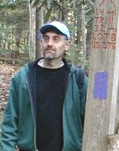 Tim Risher
Tim Risher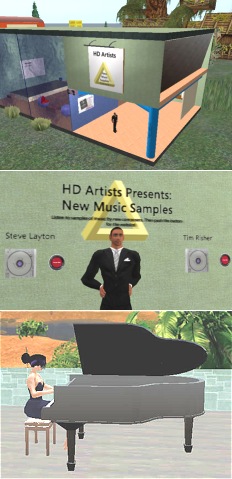 What Tim has dreamed up in his own little patch of turf within Second Life, is a place called HD Artists (for you folks who already wander this alternate world, here’s a
What Tim has dreamed up in his own little patch of turf within Second Life, is a place called HD Artists (for you folks who already wander this alternate world, here’s a 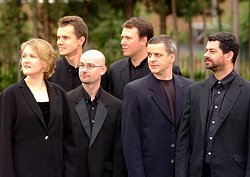 (OK, OK I know, the puns don’t come any worse than that…) No F.Z. music, but rather a reminder that The excellent U.K. ensemble Psappha (with help from Lancaster University and the BBC Singers) is in the middle of a
(OK, OK I know, the puns don’t come any worse than that…) No F.Z. music, but rather a reminder that The excellent U.K. ensemble Psappha (with help from Lancaster University and the BBC Singers) is in the middle of a 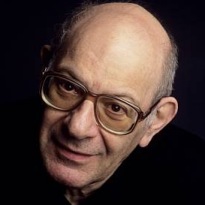 UBUWEB is playing online host to an excellent hour-long
UBUWEB is playing online host to an excellent hour-long 
 Honest, I swear this is Sequenza21, not the obituaries. But this is otherwise (and unfairly) likely to pass unnoticed in our usual music-blog land: Henri Chopin, one of the pioneering figures in sound poetry, passed away in France on January 3rd.
Honest, I swear this is Sequenza21, not the obituaries. But this is otherwise (and unfairly) likely to pass unnoticed in our usual music-blog land: Henri Chopin, one of the pioneering figures in sound poetry, passed away in France on January 3rd.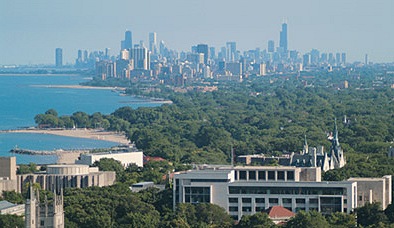
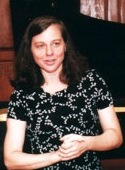 The talk is always “Oh that Schoenberg, making this artificial system that nobody really gets or feels!”… Except there are a few people like Julie:
The talk is always “Oh that Schoenberg, making this artificial system that nobody really gets or feels!”… Except there are a few people like Julie: Samuel posts around these parts, though infrequently enough that I feel OK about plugging him here. We’ve been bumping into each other for years on the USENET classical newsgroups, a happy breeze of true contemporary thinking amid all the John Williams wannabees and folk who haven’t gotten past Holst or even Yanni. From the rather complicated and involved pieces of his time in University, he’s been progressively paring back both his scores and materials; still finding the complicated and involved, but arising out of seemingly simple and clear actions and reactions. He’s also great Euro-advocate of our own expat composer, Tom Johnson, who pioneered many of these same concerns. Samuel also performs, and has helped produce a number of great exploratory concerts in Amsterdam over the years. His site linked above has plenty of listening, both to his own work and others equally interesting (Johnson included). If you’re ever headed to Amsterdam, he’s your hook-up, go-to guy.
Samuel posts around these parts, though infrequently enough that I feel OK about plugging him here. We’ve been bumping into each other for years on the USENET classical newsgroups, a happy breeze of true contemporary thinking amid all the John Williams wannabees and folk who haven’t gotten past Holst or even Yanni. From the rather complicated and involved pieces of his time in University, he’s been progressively paring back both his scores and materials; still finding the complicated and involved, but arising out of seemingly simple and clear actions and reactions. He’s also great Euro-advocate of our own expat composer, Tom Johnson, who pioneered many of these same concerns. Samuel also performs, and has helped produce a number of great exploratory concerts in Amsterdam over the years. His site linked above has plenty of listening, both to his own work and others equally interesting (Johnson included). If you’re ever headed to Amsterdam, he’s your hook-up, go-to guy.